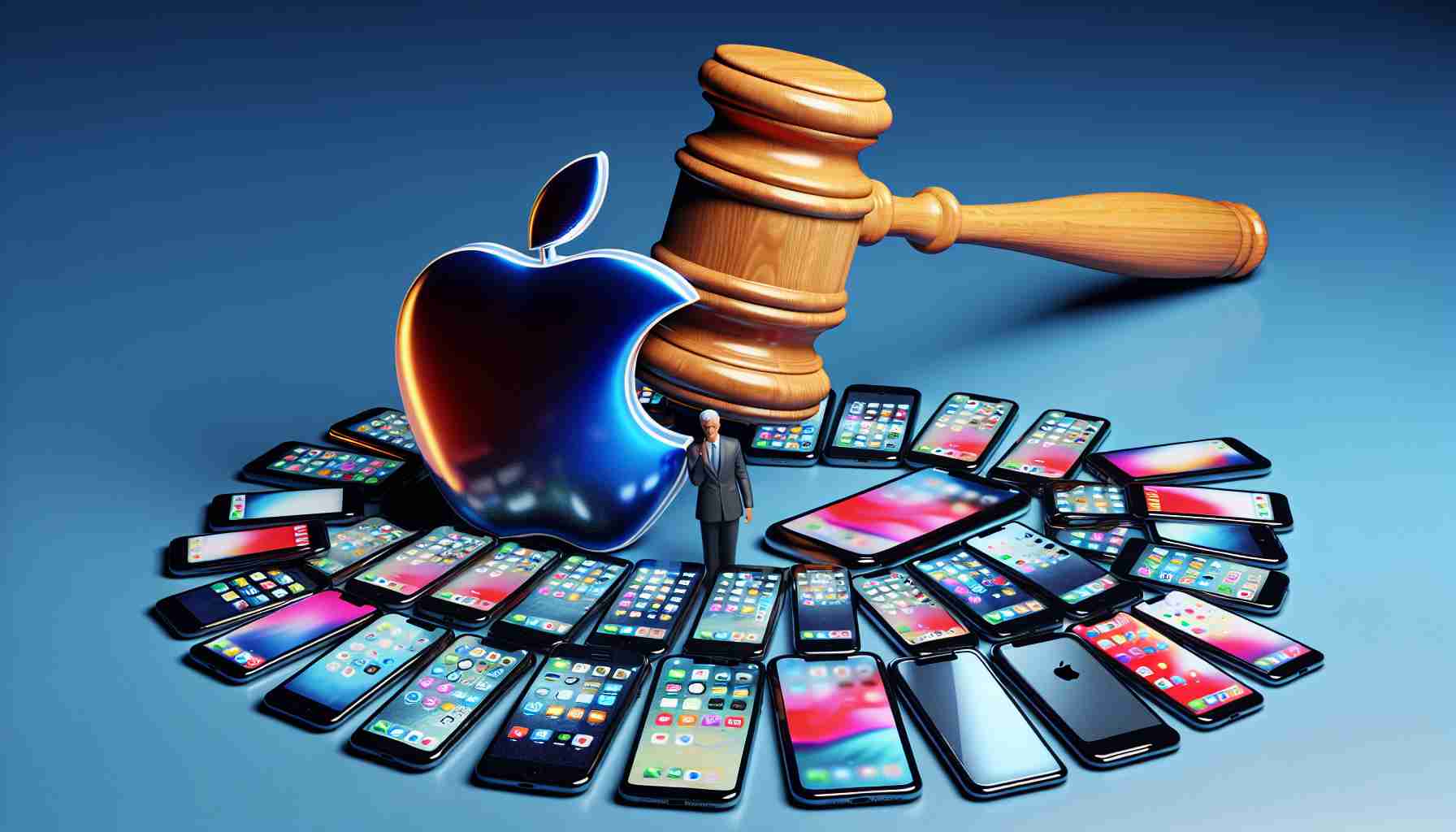The US Justice Department has recently filed a landmark lawsuit against tech giant Apple, accusing the company of monopolizing the smartphone market and suppressing competition. According to the complaint, Apple is alleged to have used its control of the iPhone to unlawfully limit competitors and consumer options.
The lawsuit claims that Apple employed a variety of tactics to impede innovation and stifle its rivals. These tactics reportedly included blocking apps with broad functionality, suppressing mobile cloud streaming services, restricting third-party digital wallets, and reducing the functionality of non-Apple smartwatches.
Attorney General Merrick Garland stated that Apple’s actions undermine the development of apps, products, and services that could offer users alternatives to the iPhone, potentially leading to lower costs. He emphasized that consumers should not have to bear higher prices due to companies breaking the law.
Fred Sainz, a spokesperson for Apple, vehemently denies the allegations, insisting that the lawsuit is misguided and that the company will vigorously defend itself. Sainz argues that if successful, the lawsuit could inhibit Apple’s ability to deliver the technological advancements that users have come to expect from the brand.
This is not the first time Apple has faced legal action from the Justice Department. The current lawsuit marks the third time since 2009 that the company has been sued by the department. Notably, this lawsuit is the first antitrust challenge against Apple during President Joe Biden’s administration.
Industry experts, including Anat Alon-Beck, a business law professor, have criticized Apple for systematically excluding competitors from its ecosystem. Alon-Beck asserts that this behavior harms start-up businesses, stakeholders, customers, and even shareholders.
Apple has also faced scrutiny from the European Union, being fined €1.8bn last month for violating competition laws related to music streaming. The European Commission found that Apple had abused its dominant position in the market by restricting payment options for streaming services within the Apple app store.
As Apple’s share of the US smartphone market exceeds 70%, and its share of the broader smartphone market exceeds 65%, the Justice Department’s lawsuit seeks to address concerns of monopolistic practices within the industry. The outcome of the case will have significant implications for Apple’s future and the broader smartphone market as a whole.
The smartphone industry is highly competitive and constantly evolving. Apple’s dominance in the market has been a point of controversy, with concerns raised about potential monopolistic practices and the suppression of competition. The Justice Department’s recent lawsuit against Apple sheds light on these issues and their potential implications.
Apple’s control over the iPhone, one of the most popular smartphones globally, gives the company significant influence over the market. The lawsuit accuses Apple of using this control to unlawfully limit competition and consumer choice. The tactics employed by Apple, as mentioned in the complaint, range from blocking apps with broad functionality to restricting third-party digital wallets.
These actions by Apple are alleged to impede innovation in the industry and hinder the development of alternative products and services. By limiting competitors’ access to its ecosystem, Apple potentially reduces consumer options and could result in higher prices for users. Attorney General Merrick Garland highlights the importance of fair competition, stating that companies should not be allowed to break the law at the expense of consumers.
Apple, on the other hand, vehemently denies the allegations and argues that the lawsuit is misguided. The company, known for its commitment to technological advancements, claims that the legal action could hinder its ability to deliver the innovations that users expect.
This is not the first time Apple has faced legal challenges from the Justice Department. However, the current lawsuit is significant as it is the first antitrust challenge against the company during President Joe Biden’s administration. The scrutiny faced by Apple extends beyond the United States, as the European Union recently fined Apple for violating competition laws related to music streaming.
The outcome of the lawsuit will have far-reaching implications for Apple and the broader smartphone market. With Apple’s substantial market share in the US exceeding 70% and its global market share surpassing 65%, the case will shape the dynamics of competition within the industry. Additionally, it will influence the direction of future regulatory actions and potential reforms in the smartphone market.
For more information on the latest developments in the industry and market forecasts, you can visit reputable sources such as Statista or Gartner. These platforms provide valuable insights and analysis on market trends, consumer behavior, and the competitive landscape in the smartphone industry.
The source of the article is from the blog lokale-komercyjne.pl
